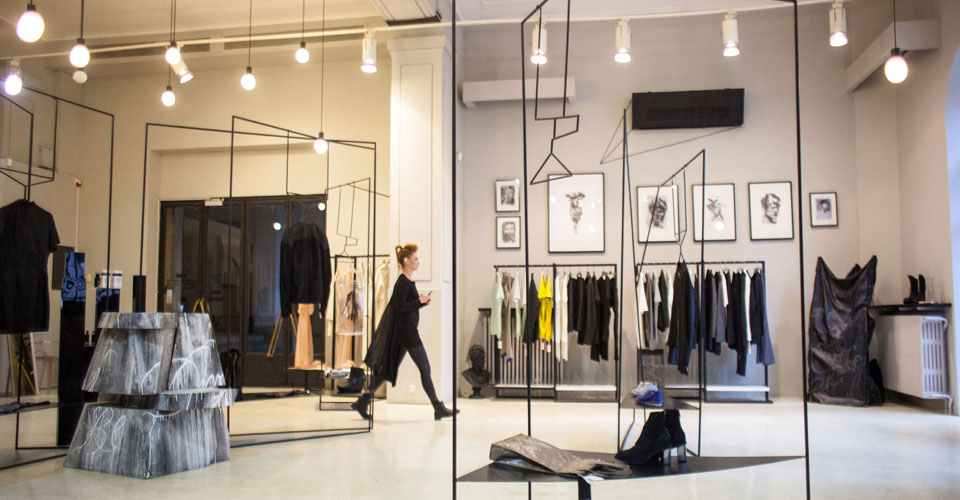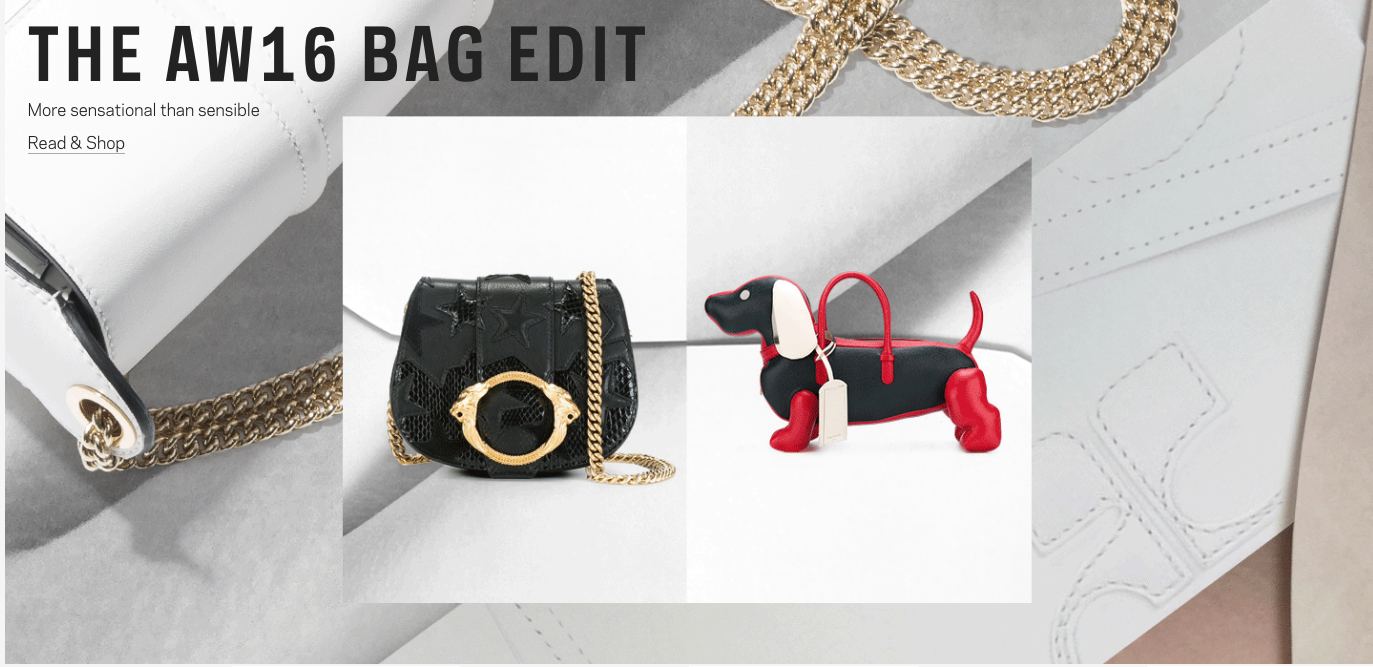(Editor’s note: This post has been updated with news about Farfetch. It was originally posted in April.)
Good news coming for expat shoppers living in certain European fashion capitals who want a taste of good old American consumer excess … even if it is via a British e-tailer. Farfetch, an online provider of ultra high-end apparel, will be extending its product reach and delivery services.
But before you increase your Visa credit limits, let’s be a little bit more precise: Farfetch does not dabble in basic tops, bargain dresses for spring, 50 euro jumpsuits and guys’ sweat shorts and hoodies. For that, stick with H&M. Farfetch has built its online retail business, which generates about $500 million per year, delivering what Bloomberg News described as “that $13,140 rainbow-patterned, sleeveless llama fur coat by Marni delivered posthaste to your yacht in Capri.”
And for that, yes, a solid Visa credit limit is not a bad beginning. London-based Farfetch executives give you the apparel you’re not going to have to worry about anyone else showing up in at the cocktail party by finding and representing small, high-end (Bloomberg amends that to “ultrahigh-end”) clothing boutiques in 30 countries around the world who don’t want the declassé (no to menion demanding) task of running their own websites.
The Farfetch tag line is “400 BOUTIQUES. 1 ADDRESS.”
The deal is, founder and CEO José Neves – a Porto, Portugal-born software engineer – has figured out how to build what we’d term an “aggregated e-commerce logistics platform,” selling apparel from 400 or so fashion boutiques around the world and more than 100 brands. The Telegraph has a 4 September post about Farfetch that calls it the “e-retail version of cloud computing, with its inventory dispersed in boutiques around the world, while Net-a-Porter’s big, company-owned warehouses represent giant servers.”
“Farfetch handles shipping and returns for boutiques from Mumbai to Memphis to Madrid, and takes an undisclosed cut from each sale,” Bloomberg reports. This is both good news for fashionistas and for expats, who often have a difficult time getting what they want in their new countries. (Try living in the Netherlands and ordering from Amazon … only to find the only thing Amazon sells from the Netherlands is books, and German Amazon won’t ship you what you want. Oy vay.)
If you don’t think this is a viable business, some big investors disagree. Last year, Farfetch announced $86 million in funding from the likes of New York publishing giant Condé Nast and Russian investment firm DST Global. This year, Neves & Co. closed a $110 million Series F round, led by new investors Temasek, IDG Capital Partners and Eurazeo, according to Business of Fashion. The valuation for Farfetch? About $1.2 billion, which makes it one of Europe’s rare Unicorns.
Farfetch has sold over $1 billion in merchandise since Neves launched in 2008. Gross revenue for 2015 were $512 million, up 70 per cent from the year before, and he’s predicting $800 million for 2016.
Last month, it reached its millionth customer. (You know you’re doing something right when imitators start springing up. A Farfetch-style site in the Netherlands with 130 boutiques in the Benelux countries – Netherlands, Luxembourg and Belgium – just unveiled an international version of its website in English.)
If you’re having trouble buying apparel online, you’ll be heartened by the news that it’s expanding its delivery options – all over the globe, but especially in Europe. Farfetch offers same-day delivery in the cities where it has arrangements with local boutiques. That includes Barcelona, Madrid, Milan, London, Paris and Rome (as well as New York, Miami and Los Angeles in the Unites States).
And the e-commerce startup is eyeing the next big growth markets, which Farfetch founder Neves says are China, India and, especially Russia, where he says Farfetch is growing by “triple digits” despite a local economic crisis. Neves is also beginning to acquire some of those boutiques that he has previously represented. Last year, he bought Browns, a legendary boutique in London’s Mayfair district credited with discovering Alexander McQueen and John Galliano.
And, straddling the line between fashion mogul and techie entrepreneur, Neves says he’s planning to set up image-recognition software in the stores that can identify a customer entering the shop and glean from electronic records whether she’d like help, a dressing room, or a heads-up that a jacket she tried on a month ago is now on sale. On the same-day delivery service, says Neves, orders placed before 10 a.m., Monday through Friday, are eligible for the same-day service, which costs $25.
Yes, there’s an upcharge. But, presumably, if you’ll spend $1,233 for a strapless ruffle top because it has the Holly Fulton label, you’ll go for the additional $25.















